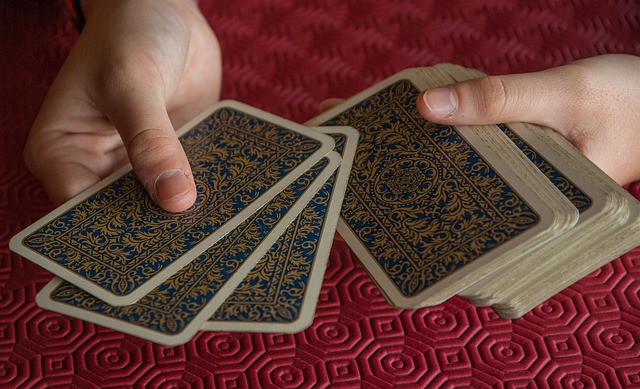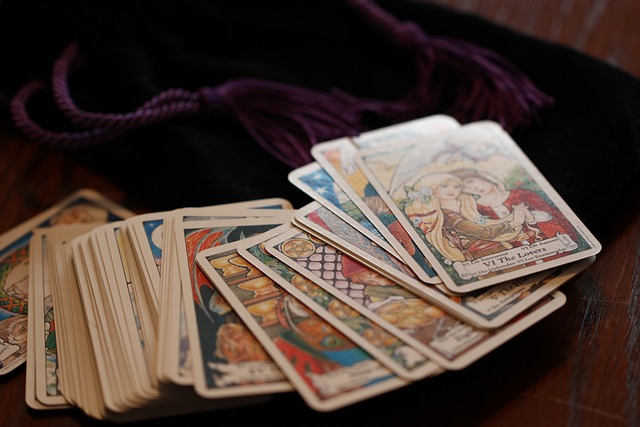
A list of tarot cards will help you learn the meanings of each card. These lists are categorized into the major and minor arcana, and the cards are arranged by suit. This will make it easy to comprehend the 78 cards. It will also help you decide which ones you should focus on.
78 cards
This deck is available as a collector's set, featuring a magnetic box and holographic foil accents. Its 78 cards make the artwork pop more than other tarot decks. Each card weighs 350 grams, and it's made of a high-quality material with a matte finish to prevent glare during the reading.
The 78 cards can be used for a variety purposes. The 78 Nautical Tarot is an example of this. It features different artists' artwork. Even though each card may have different artwork, the common theme of the nautical theme unites them all. This gives the deck an overall sense of unity as well as connectivity.

Tarot cards can be broken down into two groups. The Major Arcana contains cards for general topics, while the Minor Arcana contains cards for more practical and everyday situations. They are used to represent our daily activities, emotions, and everyday situations. A Tarot guide provides a complete understanding of all 78 cards, as well as basic concepts that you can use in Tarot spreads.
Four suits
The traditional tarot deck has four suits. Each suit has ten card, one for each element, and four for "Royal Family." Tarot decks include 22 Major Arcana and 22 Minor Arcana cards. The images on these cards represent a variety of situations in life.
The four suits are used by the tarot to show different aspects of one’s personality. The suit that represents the beginning of a new idea, growth, or purpose is the suit called Wands. A Wand card can also be used to represent an issue in its early stages.
The Minor Arcana, also known as the pips, is the remaining 56 cards in a tarot deck. These cards represent each element and are arranged according their respective properties. These cards are also organized according to their value progression from jack to 10,

The Fool
The Fool is a powerful card to overcome fear. This card represents the playful spirit within us and is full of energy. It encourages us to step out into the unknown, trusting that the Universe will catch us. It is also a good card if you are unsure of your life's direction.
The Fool is a card that encourages people to embrace their curiosity. It encourages people not to be afraid to live their lives to the fullest. The Fool also encourages people avoid fear and embrace new opportunities. Also, the Fool encourages people not to fear failure but to live their lives with enthusiasm.
The Fool can represent either the start of a new project, or the completion of an old one depending on its position on the tarot card deck. It could also signify that you lack trust in yourself or others.
FAQ
Which hobbies are most in demand right now?
Popularity does not always mean that you are popular. Popularity is often used to excuse mediocrity. Most people don't have the time or energy to pursue their hobbies. They are too busy trying to make ends meet. What can you do if your time is limited? Start a business.
This isn't an easy task. There are many obstacles to overcome before you can turn your idea into reality.
A hobby is a great option if you're looking to do something different than run a business.
Hobbies do not have to be limited to creative pursuits. There are many hobbies. Some of these include:
-
Gardening
-
Cooking
-
Photography
-
Reading
What are collection hobbies?
The most popular collections are books, movies, music, comics, video games, sports equipment, toys, etc.
You can also collect stamps, coins and cars as well as dolls, action figures, figurines, art supplies, kitchen utensils, jewelry and watches as well...
I think you get it.
Where can I find free resources to learn more about hobbies?
Many websites are dedicated to helping people find new hobbies.
These are our top picks:
www.trythisathome.com - This site provides a list of over 100 different hobbies. It also provides information on how to get started in each one.
www.hobbyfinders.org offers a huge database with thousands of activities. You can search for your interests, skills, location, and many other criteria.
www.indiebazaar.co.uk - IndieBazaar is an online marketplace designed specifically for independent artists and musicians. The site features hundreds of products ranging from artwork to music gear.
www.pinterest.com/explore/hobbies - Pinterest is a social media network that lets users "pin" images they find interesting onto their boards. Users can organize the things they like in specific categories with boards.
www.reddit.com/r/Hobbies: Reddit, another social media platform, allows users to post links to articles and videos. Voting is available for users to choose the most valuable posts.
What can I do to make money from my hobby or business?
Many hobbies can lead to making extra cash.
If you're passionate enough about your hobby, you may decide to sell items related to it.
If you are a stamp collector, you might want to start a website that sells rare stamps.
This will allow you to earn additional income without having go through the hassles of buying and selling stamps.
Another option is to set up a YouTube channel that focuses on your hobby.
This allows for you to share your passions with others and can potentially generate additional income by providing premium content.
What hobbies are best for introverts and what types of hobbies would they enjoy?
Introverts can focus on only one thing at a given time. They prefer solitude, such as reading, writing music, or watching movies.
They also enjoy spending quiet time alone. However, they don't like socializing all day. In fact, they can often be bored when surrounded with people.
Introverts will often choose hobbies that require them alone. You might find them reading books, listening, playing music, taking photos, writing poetry or painting.
Some introverts prefer to live alone. This allows them to concentrate on their hobby and not be distracted.
What are some great hobbies?
It's the hobbies you are most passionate about that make you happy. It will be easier to continue doing what you love if you are passionate about your work. This will give you a reason for not feeling well, or tired.
There are many hobbies that we all enjoy: gardening, painting and crafts; photography; cooking; sports and games; reading music and film-making; collecting; cycling, walking, dancing and writing; playing instruments and other musical instruments.
Another option is to volunteer at a local charity shop.
If you're looking to do something more adventurous, Take up skydiving or rock climbing, parasailing, parasailing and paragliding.
There are many ways to enjoy nature, even if you don't want to travel far. These include caving.
Statistics
- In comparison, men in the “no humor” condition were refused 84.6% of the time and were only accepted 15.4% of the time. (time.com)
- Almost 80% of people claim to have no hobby. (hobbylark.com)
- The intensity of the dialogue partners' bond at the end of the forty-five-minute vulnerability interaction was rated as closer than the closest relationship in the lives of 30 percent of similar students. (time.com)
- Studies show that just six minutes of reading can reduce stress levels by 60 percent. (oberlo.com)
- 37% Video Games 36% Travel 36% Health and Fitness (quizexpo.com)
External Links
How To
How to Start Gardening
Gardening is one among the oldest forms. It requires patience, persistence, and determination. The first step to starting a garden is to pick a spot where you will grow food. It could be large land, or just your backyard. Next, decide what type of plants you want to grow. Do you prefer flowers or vegetables? Some people like to grow herbs and others enjoy raising livestock, such as rabbits. Before you decide which crops you will plant, consider the amount of space you have. If you live in a region that experiences cold winters then it is possible to grow fruits and berries.
Once you have made your choice, it is time to prepare the soil. Your plants' success or failure will depend on the soil they are placed in. A good soil has organic matter which helps to feed the roots of your plants. Organic matter includes leaves, twigs (grass clippings), manure, compost, and manure. You need nutrients to your soil after you have prepared it. You might need different amounts, depending on the species of plants that you want to grow. An online fertilizer calculator can help you calculate these values. Many fertilizers are available, so make sure you know what you are buying.
After you have prepared the soil and added nutrients, it is time to wait for your seeds germination. This process usually takes anywhere from 2 weeks to 3 months, depending on the weather and the temperature in your area. Once your seeds have sprouted, you need to water them regularly. Watering your plants too little or too often can cause problems. Overwatering can cause problems. Overwatering can lead to root rot and fungal diseases. Remember that plants need less water in the summer than they do in the winter. Keep in mind that certain plants may need to be dried after being watered. Tomatoes for instance need to remain slightly moist, but not wet. They are not happy to be in soggy soil. After the plants have finished flowering they must go dormant. The time when plants stop producing new life and store energy for the next season is called dormancy. Dormancy is when the plant stops sending signals back to its roots for food production. Plants continue to store energy throughout this period. The plant will eventually die if it is not given enough sunlight or temperatures below freezing.
Living in urban areas may restrict the types of plants you can plant. Concrete sidewalks, roads or parking lots can block sunlight from reaching urban areas. Concrete absorbs light, preventing the soil underneath from getting adequate sun exposure. Many plants can't thrive in urban environments because they lack sunlight. There are many plants that can survive in urban environments. Many trees, perennials, shrubs, as well as shrubs can be adapted to urban living. Many annuals can also be grown indoors in container gardens. Container gardens allow you to bring fresh greenery into your home year-round regardless of the weather outside.
You are now ready for planting!